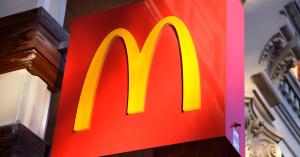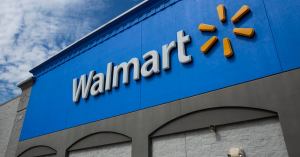Kroger will close two grocery stores in Long Beach, California, after the city approved a mandate requiring growers to pay employees an extra $4 in “hazard pay” during the coronavirus pandemic. The stores being shuttered are a Ralphs and a Food 4 Less, which the company claimed were “long struggling.” The closures will impact almost 200 employees, and layoffs may be announced.
“As a result of the City of Long Beach’s decision to pass an ordinance mandating Extra Pay for grocery workers, we have made the difficult decision to permanently close long-struggling store locations in Long Beach,” a company spokesperson told NPR Tuesday. “This misguided action by the Long Beach City Council oversteps the traditional bargaining process and applies to some, but not all, grocery workers in the city.” The two stores will close on April 17.
Videos by PopCulture.com
The new law, passed last month, affects companies with over 300 employees nationwide and over 15 employees per store in Long Beach. The mandate is in effect for the next 120 days. Kroger Ralphs Division spokesman John Votava told the Long Beach Post the closures would impact about 200 employees. “We may not be able to take care of every individual and it may result in layoffs,” he said.
Four other Ralphs stores and two Food 4 Less stores will stay open. Long Beach’s Pacific Gateway Workforce Innovation Network said it would help any employee from the closed stores to receive unemployment benefits and other services. After Kroger’s announcement, Long Beach Mayor Robert Garcia tweeted that the city will “go to court this month and we will defend the workers vigorously.”
While the idea of requiring hazard pay has been discussed in other cities, Long Beach was the first to put a law into effect. In January, the city council unanimously approved the ordinance. “Grocery workers working during the COVID-19 emergency merit additional compensation because they are performing hazardous duty due to the significant risk of exposure to the COVID-19 virus,” the ordinance reads. “They are working in these hazardous conditions now and will continue to face safety risks as the virus presents an ongoing threat for an uncertain period, potentially resulting in subsequent waves of infection.”
Kroger said it invested $1.3 billion in rewards to employees and safety measures since the start of the pandemic. It also helped employees experiencing hardships with its $15 million Helping Hands fund. However, closing these stores has been widely criticized because grocery store chains have seen record profits during the pandemic. A Brookings Institute study found that supermarket chains and other food retailers saw profits jump by an average of 39% in the first six months of 2020. Kroger also gave employees a 10% pay raise at the pandemic’s start, but it expired in May. The company offered a $400 “thank you” bonus, but that was in June.





